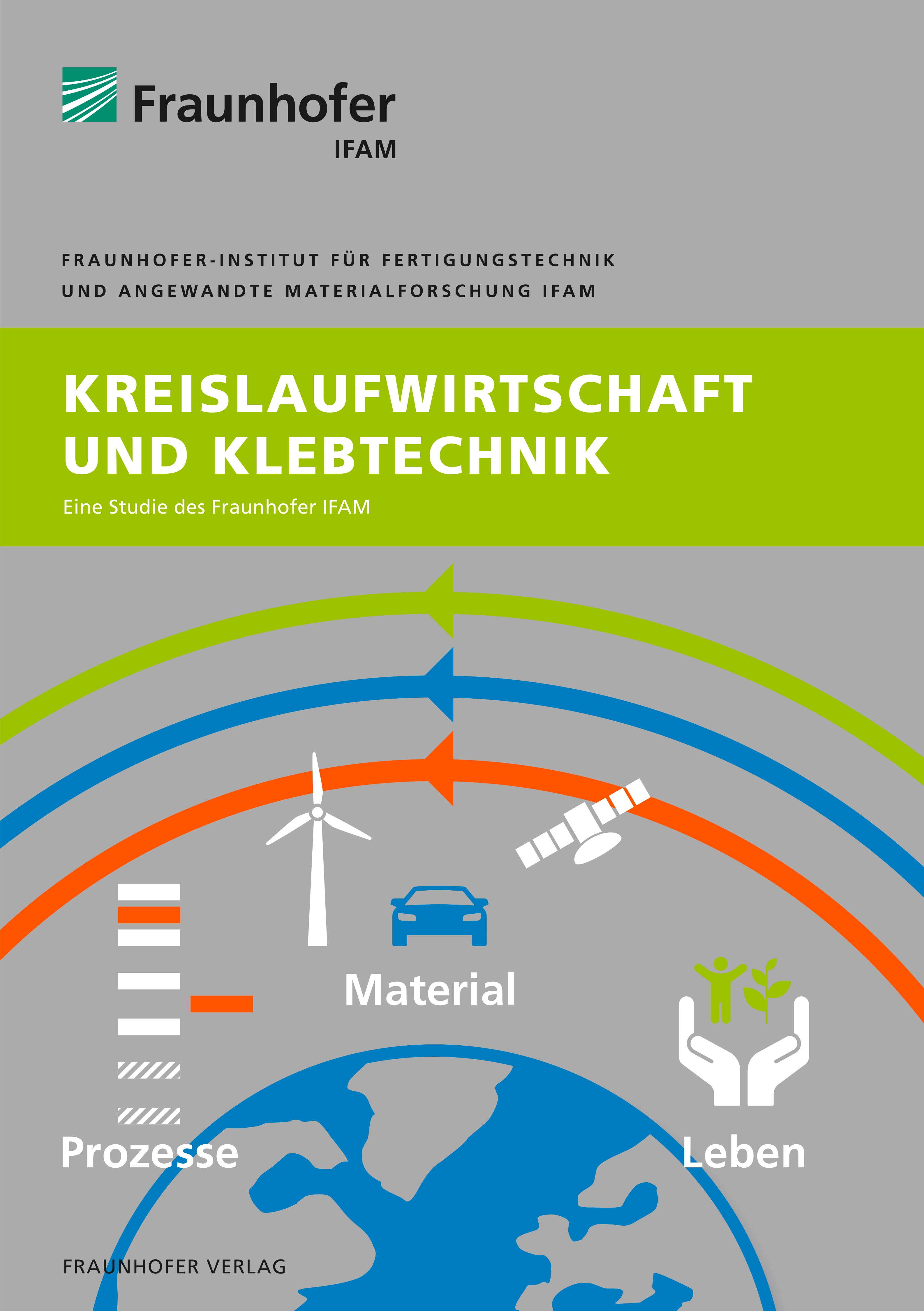
Dr. Katharina Haag is a research associate in the Department of Polymer Materials and Structures at Fraunhofer IFAM. Since spring 2019, she has headed the group Material-Specific Manufacturing Concepts. At the end of last year, the Circular Economy / Sustainability Technology Platform emerged from the group - initially internally. Under the coordination of Dr. Katharina Haag, Fraunhofer IFAM bundles the institute's expertise in this topic area in the platform.
In August 2020, Fraunhofer IFAM published the comprehensive study »Circular economy and adhesive bonding technology«. Dr. Katharina Haag acted as co-author of the interdisciplinary scientific work. Together with Prof. Dr. Andreas Groß, she will present the results of the study in a free webinar on 25.11.2020. Beforehand, the researcher answered three questions about the study and the future topic of sustainability.
How did the idea for the »Circular economy and adhesive bonding technology« study come about?
The topics of circular economy and sustainability are becoming increasingly important in general, social and political perception. The industry - adhesive manufacturers as well as users - therefore also increasingly wants and needs to deal with these topics. As a leading research institute in the field of adhesive bonding technology, we have therefore decided to take up the topic and shed light on how adhesive bonding technology can contribute to the circular economy and eco-balance effectiveness in the study »Circular economy and adhesive bonding technology« as objectively and up-to-date as possible. On approx. 300 pages, we have summarised where the current limits lie, what challenges adhesive bonding technology has to face with regard to the circular economy and eco-design, what aspects are relevant for a life cycle analysis and what function adhesive bonding technology has to fulfil as a partner of the circular economy, in order to ultimately derive strategies on how adhesive bonding technology can support the circular economy and eco-design.
What are the main findings of the study from your point of view?
What at first sounds like a contradiction, we were able to disprove in my estimation: bonding - professionally implemented - represents a sustainable joining technology. In addition to examples that are already being used, we also explicitly address future topics that will certainly concern us. These also include related areas such as raw material extraction and digitalisation. An important topic in the future will also be the controlled long-term durability of bonded joints.
What role will the topic of »sustainability« play at Fraunhofer IFAM in the future?
The topic of sustainability is becoming increasingly important, we are noticing this in almost all areas. We have taken this as an opportunity to bundle the various activities in the platform RE:FORM MATERIAL - Platform for Sustainable Materials Development and Manufacturing Technology at Fraunhofer IFAM and thus pool our expertise. The topics go far beyond adhesive bonding technology: new lightweight materials, efficient manufacturing processes, novel repair and recycling methods are just a few examples of what we are currently working on. The platform will soon also make our activities visible with its own website. www.re-form-material.de
Thank you very much for the interview!